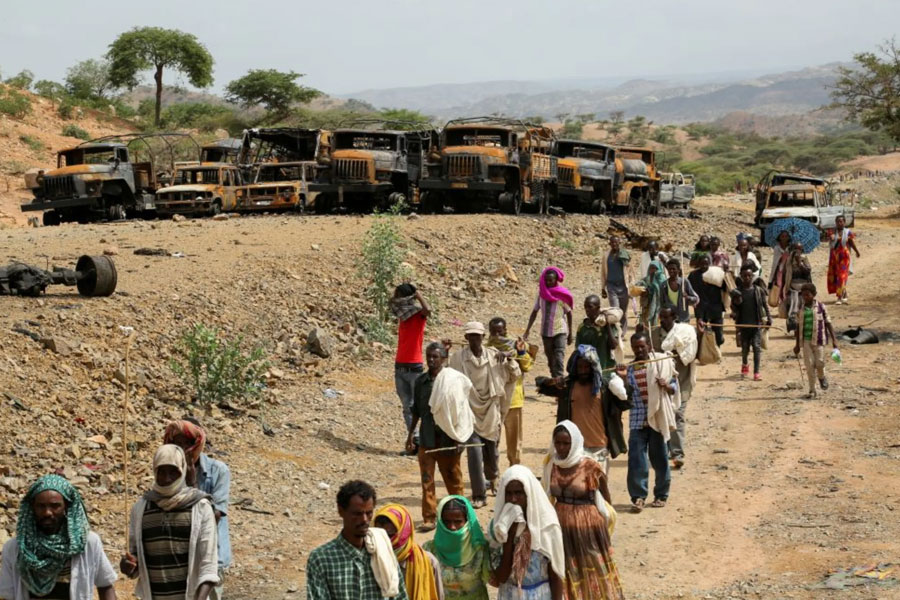
The 2010s, like the 1970s and the 1990s, has seen tectonic shifts in the political, social and economic life of the nation. It started without much clamour. The EPRDF and its allies won a comfortable majority in the general elections, an ambitious five-year developmental economic plan was launched and the socio-cultural status quo of the 1990s and 2010s seemed to remain firmly in place.
By the mid-2010s, the seeds that would lead to an unprecedented unraveling were already sown. The ruling party had lost to natural causes its leader of around two decades, enigmatic leader Meles Zenawi; a drought had devastated the eastern, western and central parts of the country; inflation was in the double digits, the foreign currency crisis was barely improving; and the double-digit economic growth was impressing all but Western pundits and media institutions. Most notably, a protest had broken out in a university campus in Ambo over the introduction of an integrated urban master plan for Addis Abeba. The protest would light the fire that culminated in the ascendancy to office of Prime Minister Abiy Ahmed (PhD), in April 2018.
The late 2010s ushered in an era of unprecedented euphoria followed closely by the possibility of state fracture. In the early 2010s, Ethiopia was nowhere to be found on a list of the top 10 conflicts to watch by the International Crisis Group. By 2019, the country has shot up to third place. No country with a broken-down political system can have a stable economy, and Ethiopia was no exception. Conflicts, displacements, loss of lives and damage to property did not help investor confidence. And even as the government moved to liberalise, privatise and smoothen the business environment, a traumatised private sector, weak export revenue, a tiny manufacturing sector and double-digit inflation continued to cripple the economy from being competitive. Fortune has identified the top 10 lessons Ethiopia can take from a decade that was as unpredictable as it was overwhelming and as promising as it was terrifying.
You can read the full story here
PUBLISHED ON
Jan 05,2020 [ VOL
20 , NO
1028]

Viewpoints | Jul 31,2021

Viewpoints | Nov 02,2019

Verbatim | Jun 14,2025

Viewpoints | Jan 03,2021

Radar | Feb 11,2023

Radar | Aug 03,2019

Year In Review | Jan 02,2024

Radar | Aug 01,2020

My Opinion | Sep 16,2023

Obituary | Jan 25,2025

Dec 22 , 2024 . By TIZITA SHEWAFERAW
Charged with transforming colossal state-owned enterprises into modern and competitiv...

Aug 18 , 2024 . By AKSAH ITALO
Although predictable Yonas Zerihun's job in the ride-hailing service is not immune to...

Jul 28 , 2024 . By TIZITA SHEWAFERAW
Unhabitual, perhaps too many, Samuel Gebreyohannes, 38, used to occasionally enjoy a couple of beers at breakfast. However, he recently swit...

Jul 13 , 2024 . By AKSAH ITALO
Investors who rely on tractors, trucks, and field vehicles for commuting, transporting commodities, and f...

Jul 12 , 2025
Political leaders and their policy advisors often promise great leaps forward, yet th...

Jul 5 , 2025
Six years ago, Ethiopia was the darling of international liberal commentators. A year...

Jun 28 , 2025
Meseret Damtie, the assertive auditor general, has never been shy about naming names...

Jun 21 , 2025
A well-worn adage says, “Budget is not destiny, but it is direction.” Examining t...